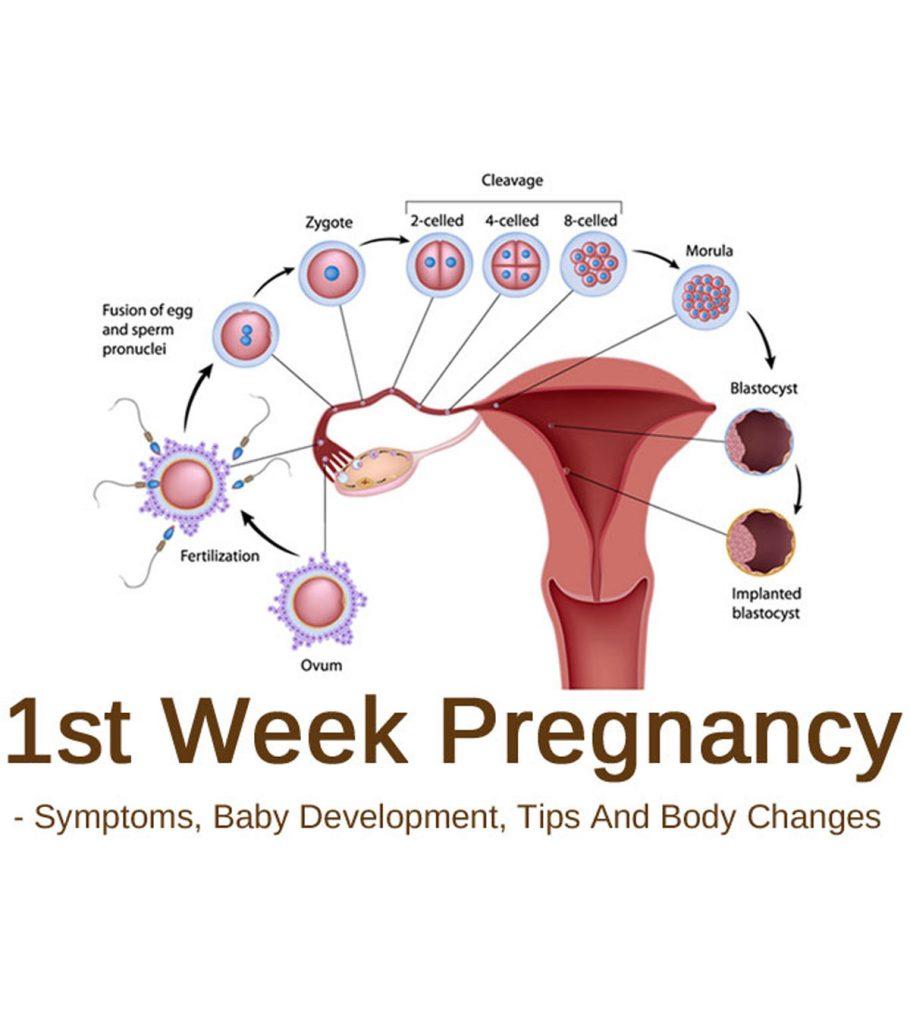
Pregnancy: Week 1
Conception and Implantation
The journey of pregnancy begins with conception, which occurs when a sperm fertilizes an egg. This usually takes place in the fallopian tube, where the egg travels after being released from the ovary during ovulation.
After fertilization, the fertilized egg, now called a zygote, undergoes cell division as it travels down the fallopian tube towards the uterus. Around day 3-4, the zygote becomes a morula, a ball of rapidly dividing cells.
By day 5-6, the morula transforms into a blastocyst, a hollow sphere with an inner cell mass and an outer layer of cells called the trophoblast. The trophoblast will eventually form the placenta, while the inner cell mass will develop into the embryo and fetal membranes.
Around day 6-7, the blastocyst enters the uterus and begins the process of implantation. The trophoblast cells attach to the uterine lining, or endometrium, and burrow into it. This process can take several days and is crucial for establishing a successful pregnancy.
Hormonal Changes
During the first week of pregnancy, significant hormonal changes occur to support the implantation and early development of the embryo.
- Human Chorionic Gonadotropin (hCG): This hormone is produced by the trophoblast cells after implantation. It signals the ovaries to continue producing progesterone, which is essential for maintaining the uterine lining and preventing menstruation. hCG levels rise rapidly in early pregnancy and are the basis for most pregnancy tests.
- Progesterone: Progesterone, produced by the ovaries and later by the placenta, prepares the uterus for pregnancy by thickening the uterine lining and suppressing uterine contractions.
- Estrogen: Estrogen, also produced by the ovaries, plays a role in the development of the uterine lining and the growth of the uterus.
Symptoms
Most women do not experience any noticeable symptoms during the first week of pregnancy. However, some may experience mild symptoms, such as:
- Implantation bleeding: Some women may experience light spotting or bleeding around the time of implantation, which is usually lighter than a menstrual period.
- Cramping: Mild cramps may occur as the uterus prepares for implantation and the embryo grows.
- Breast tenderness: The breasts may become tender and swollen due to hormonal changes.
- Fatigue: Progesterone can cause increased fatigue in early pregnancy.
- Nausea: Morning sickness, characterized by nausea and vomiting, typically begins around week 6-8 of pregnancy, but some women may experience it earlier.
What to Expect
During the first week of pregnancy, the fertilized egg is undergoing rapid cell division and preparing for implantation. The mother’s body is also experiencing hormonal changes to support the early development of the embryo.
It is important to note that not all women will experience symptoms during the first week of pregnancy. If you suspect you may be pregnant, taking a home pregnancy test or consulting with a healthcare provider is recommended to confirm the pregnancy.
Tips for a Healthy Pregnancy
- Take prenatal vitamins: Prenatal vitamins, such as folic acid, iron, and calcium, are essential for the healthy development of the fetus.
- Eat a healthy diet: A balanced diet rich in fruits, vegetables, and whole grains provides the nutrients necessary for both the mother and the growing baby.
- Exercise regularly: Moderate exercise, such as walking, swimming, or yoga, is safe and beneficial during pregnancy.
- Get enough sleep: Aim for 7-9 hours of sleep each night to support your body’s recovery and growth.
- Avoid alcohol and smoking: Alcohol and smoking can harm the developing fetus.
- Manage stress: Stress can have negative effects on pregnancy. Find healthy ways to manage stress, such as yoga, meditation, or spending time in nature.
Conclusion
The first week of pregnancy is a crucial time for the establishment and early development of the embryo. Understanding the hormonal changes and potential symptoms can help you navigate this important stage of pregnancy. By following healthy habits and seeking medical care when necessary, you can support a healthy pregnancy and the well-being of your future child.